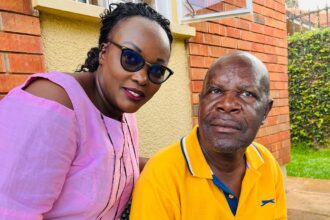By Mike Ssegawa
A civil society organization engaged in advocating for water, sanitary and hygiene (WASH) issues has sounded a bell, demanding that the government stops the Ping-Pong over provision of sanitary pads since it committed itself to provision of universal education for primary and secondary levels.
The organization demands that the government should do away with contradictions in its universal education policy by coming out clean on whether they are able to provide menstrual health to girls or not.
Recently the country has been hit by a storm after Mrs Janet Museveni, the minister of education and sports said there was no money to buy sanitary pads as promised by President Museveni during the campaigns. The minister has since been criticized for getting educational priorities wrong while the country went about spending on non critical areas.

Water Aid Uganda has been working directly with different communities in Uganda for the last 30 years but has changed its strategy from working with communities directly to advocacy. The organization said on Wednesday at a press conference announcing its change of strategy for the next 15 years, that government committed to ensure every child has access to education.
Ms Jacinta Nekesa explained, menstrual health keeps many girls away from school hence defeating the rationale of universal education, especially of the girl child.
Ms Nekesa, the head of programs at Water Aid added that government should come out clearly to say if it wants girls to be part of its vision of enrolling, staying and completing schools, as per boys. And if that is the case, then, the government should understand that girls need to be supported in accessing menstrual health facilities, especially the poor who cannot afford.
Nekesa explained that government has achieved over 90% enrollment of children, but the analysis shows that only 47% keep in school.
“One of the reasons girls are not in school is because of menstrual hygiene management,” she said, adding that government should address itself on the issue of who should pay for pads.
“We call upon government to at least provide emergence pads,” Nekesa said emphatically.
Water Aid Uganda will launch its new strategy on Thursday at Kampala Serena Hotel.
The new strategy has set out a goal for the organization to defend the voiceless especially women and girls who cannot defend themselves and that was why they were coming out of service delivery to policy influencing.
The new country programme strategy for Water Aid according to the country director Mr Francis Musinguzi, calls for prioritized investment in Water, Sanitation and Hygiene (WASH) to achieve national development aspirations of a middle income country status.
Musinguzi said out of 39 millions Ugandans, a total of eight million still lived without access to safe and near enough water points. In rural areas where a bulk of Ugandan live, only 67% can access safe and clean water within a kilometer radius, while 71% of their counterparts in urban area access water within 200 metres, which means 29% of people in urban areas don’t have access to safe and clean water in their neighborhoods.
“How shall we hope to achieve national development if young people cannot find employment, when women still suffer indignity for lack of a safe toilet and sanitary pads, when babies continue to die of infections because of lack of hygiene facilities at home and at the health centre and when people and livestock suffer hunger to the point of losing lives, because of extreme weather,” says Mr Musinguzi.
Do you have a story in your community or an opinion to share with us: Email us at Submit an Article




